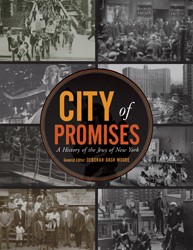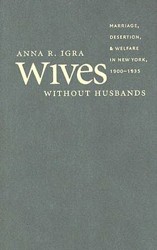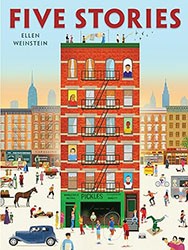The behavior of fans and the actions of athletes within the not-always-friendly confines of stadiums have been, throughout the ages, excellent barometers of a society’s morale and morality. In the Jewish tradition, ancient rabbis knew well that Greco-Roman sports venues were “seats for scorners” frequented by those who played fast and loose with the faith’s teachings. During the Middle Ages, attendance at jousting tournaments was restricted to Christian lords and ladies, a reflection of that epoch’s closed and stratified societies. Throughout the 20th century, Olympic athletes often were standard bearers of their country’s exalted and aggressive national pride. In recent decades, the destructive antics of rowdy British soccer fans who have marauded through bleachers and pens have reflected the pent-up frustrations of working class toughs who resent their status. For Jonathan Mahler, the turmoil in the clubhouse and on the playing field of Yankee Stadium in 1977 provides the place and space for a journalist’s keen look into the urban crisis that peaked in New York City during that memorable season.
Mahler has done well in using the Bronx sports-scene metaphor to symbolize the saga of a metropolis then in social turmoil and economic decline. That borough’s Bombers were a dysfunctional team that through much of the long summer of baseball could not control its emotions as it careened toward self-destruction. Its shaky, unstable manager, Billy Martin, was unable to deal with his overbearing owner, George Steinbrenner, or with his players’ egos, which were even bigger than his. Egomania was also the story within the city’s political arena as an embattled and fatigued Mayor Beame fought to hold off the insurgent challenges of Ed Koch, Mario Cuomo and Bella Abzug. Each sought to seize the reins of a broken-down city and to capitalize on an almost unprecedented day and a half of civil unrest that occurred when, in July, an electrical system breakdown plunged Gotham into darkness. To make tensions even worse, 1977 also was the “Summer of Sam” — as serial killer David Berkowitz terrorized the city.
Through it all, New Yorkers must have felt very much abandoned. The federal government showed little interest in bailing out the economically strapped city. The most President Jimmy Carter would do was to show up for a photo-op on Charlotte Street, a desolate block in the South Bronx. The Yankees also felt entirely unwanted. Though the most popular “away” team in Major League Baseball, they were also the most routinely reviled. And journalists coast to coast were pleased to keep close tabs on a team that seemingly was intent on imploding much like the city it represented. The country took perverse delight in watching the Yanks and the city, with so many wins to their credits, and possessed of legendary swagger to boot, come undone in a heat wave of weather and of rhetoric.
Of course, in the end both the club and metropolis survived and emerged from their crises stronger and more resolute. For Mahler, a symbolic turning point took place just a week after Howard Cosell, that misanthropic announcer, informed the nation during the second game of the World Series that “Ladies and gentlemen, the Bronx is burning.” A five alarm fire gutted buildings a few stones’ throws away from the big ball park. In the sixth game of the Fall Classic, slugger Reggie Jackson launched three home runs into the right field bleachers as the Yanks won the title. It was proof to many that New York was not a lost cause. These tape-measure shots became part of “the narrative of the city’s struggle for survival.”
For me, an even more telling, symbolic moment took place in the Yankee clubhouse just a few weeks before Jackson’s big night. Mahler only notes this incident in passing. But what transpired among teammates bespoke an incipient new spirit that would quickly straighten out the team and, in time, its city. The fate of the ball club changed when Thurman Munson, the Yankee catcher and captain who had been battling for leadership against Jackson allowed that he had found a modus vivendi with the equally ego-driven superstar. “How can I ever like [him], but we need him to win.” It was that sort of pragmatism, among individuals and groups who did not see eye to eye that, to my mind, informed the revival of New York after this longest and hottest of summers.
Jeffrey S. Gurock is the Libby M. Klaperman Professor of Jewish history at Yeshiva University. He has written or edited 25 books, including Jews in Gotham, which in 2012 was honored as Winner, Everett Family Foundation Award, Jewish Book of the Year, Jewish Book Council.





